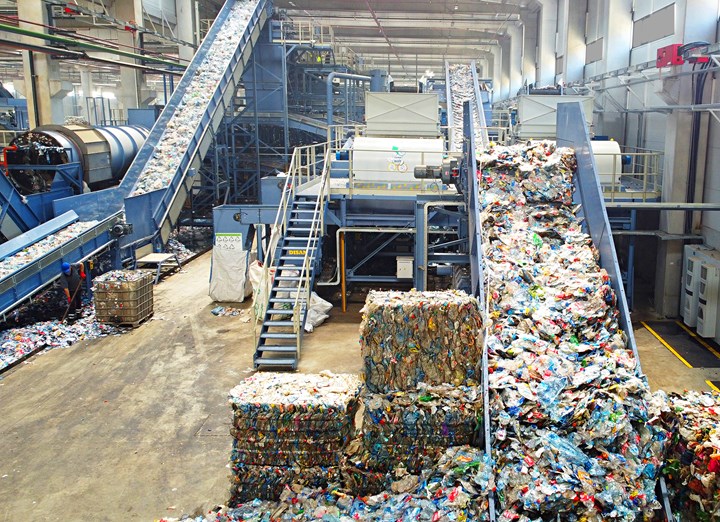Hot Wash Systems for Recycling Polyolefins
Herbold can configure wash plants for polyolefins that can produce high-quality, food-grade recyclates.

Wash plants for polyolefins that can produce high-quality, food-grade recyclates can be custom configured by Herbold Meckesheim USA, a subsidiary of Germany’s Herbold Meckesheim, which draws from vast assortment of proven plastics recycling equipment. While each wash plant is designed around the user’s specific requirements and facility characteristics, all feature a multi-stage process usually consisting of pre-shredding, pre-washing / initial separation, granulation, high density separation, and drying.
Pre-shredding is typically done in a single-shaft shredder such as the Herbold 60/120. With a 23.5-in. diameter rotor and 60 individual knives, these rugged machines can accept entire bales of contaminated waste and process up to 13,000 lb/hr.
Washing takes place in a VWE-60 pre-washing unit which employs a three-step process of sink/swim to remove heavy materials, intensive spray wash to loosen and remove embedded sediment, and an additional sink/swim to further eliminate remaining sediment. Further size reduction takes place in a wet granulator such as the Herbold 80/120. The wet operation provides additional separation of particles and contaminants from materials.
Additional high-density separation of contaminants and recyclate occurs in a Hydrocyclone. Its extreme centrifugal force reportedly provides separation that exceeds conventional methods by a factor of 15 ensuring the level of purity necessary for food-grade recyclate. After final separation, materials are conveyed to either a mechanical or thermal dryer for removal of residual moisture prior to use or storage.
Related Content
-
Upgraded CT Scanning and Multi-Sensor Coordinate Measuring Machines
Werth’s TomoScope S Plus 240 systems boast more than double the measuring volume as their predecessor with almost the same size.
-
OMV Technologies Gets New CEO
Kooper brings 33 years of experience in the industrial and consumer packaging industries to OMV--the closed-loop, turnkey, inline extrusion, thermoforming and tooling systems manufacturer.
-
Oxygen Permeation System Also Tests Relative Humidity
Ametek Mocon expands Ox-Tran 2/28 instrument portfolio












